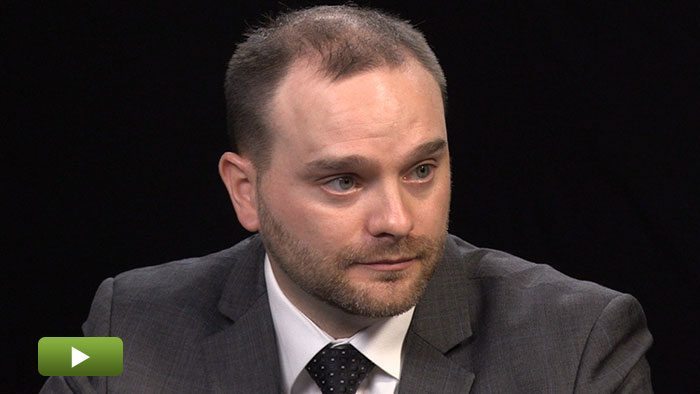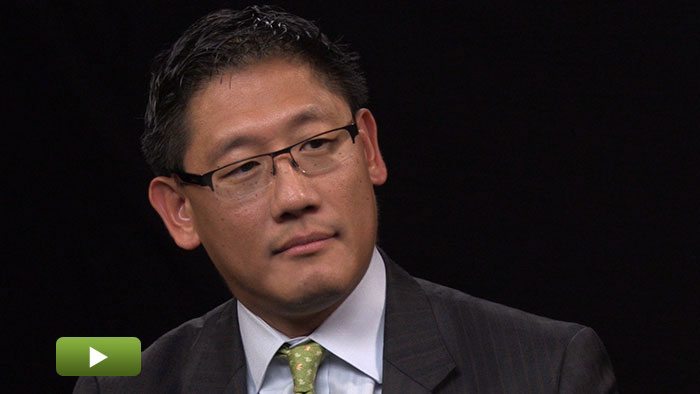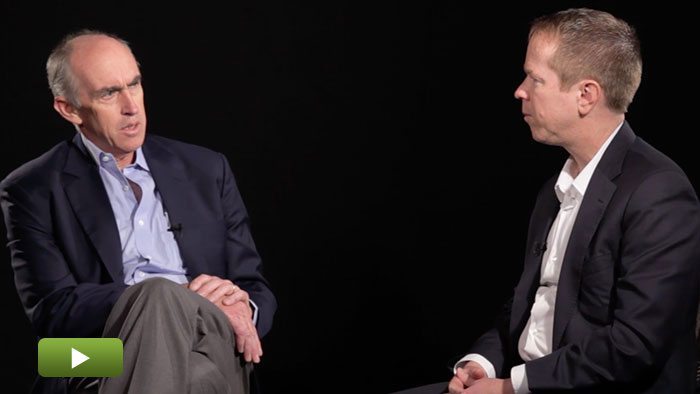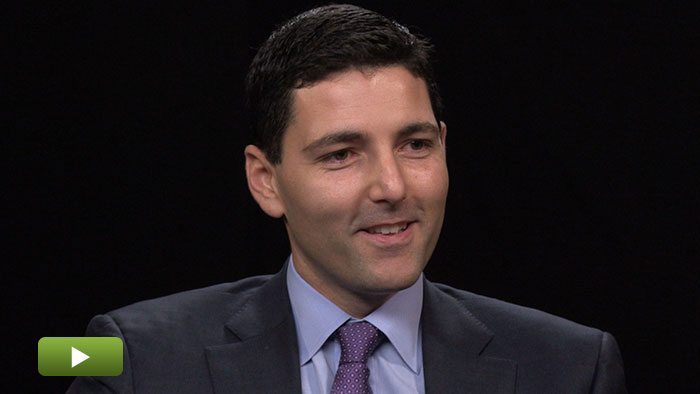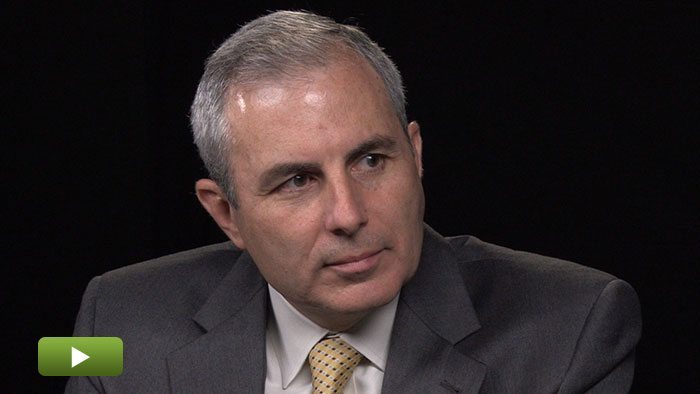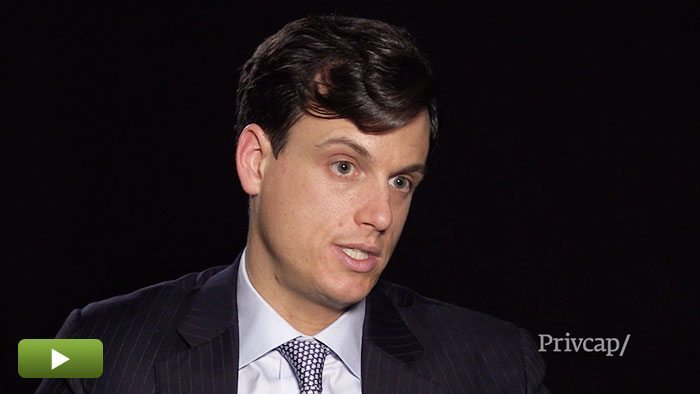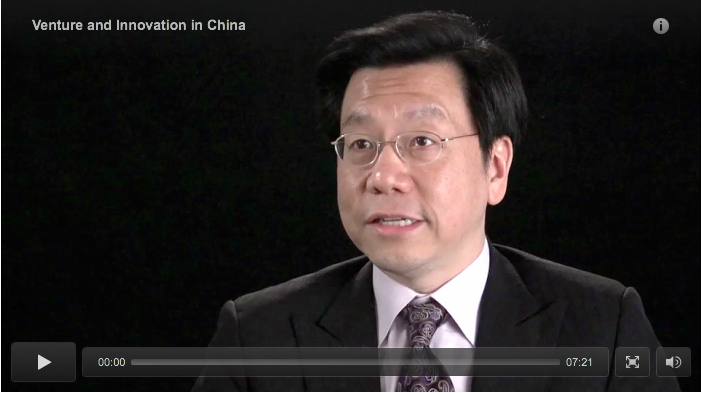General Atlantic: Why We Backed Alibaba
General Atlantic’s massive Alibaba win began with, “We don’t need capital.” GA managing director Anton Levy speaks with Privcap’s David Snow about how the firm was invited into the Chinese ecommerce giant’s shareholder structure, despite founder Jack Ma’s assertion the firm didn’t need any investment capital.
Transcript Download Transcript
General Atlantic: Why We Backed Alibaba
With Anton Levy of General Atlantic
Alibaba Group is a phenomenal business success story. But it’s also a private capital success story.
Prior to completing the largest IPO in history, the China-based ecommerce giant received significant capital from General Atlantic and Silver Lake Partners.
According to reports, General Atlantic was one of the first private investment firms to back in Alibaba, investing roughly $75 million in 2009.
In September 23, 2014, that stake was worth some $1.3 billion – in other words, a massive return to date for General Atlantic, which has yet to sell any shares.
Privcap invited General Atlantic managing director Anton Levy to stop by our studio to discuss the Alibaba deal.
David Snow, Privcap:
Anton, welcome to Privcap. Thanks for being here today.
Anton Levy, General Atlantic:
Thank you for having me.
Snow: So, Alibaba. I keep hearing about this company. It’s been a huge success story. The biggest IPO in history, and other notable features of that company, but it’s also a big private equity story especially for your firm, General Atlantic. You are an investor in Alibaba, and I’d love to hear the story about how it all came together. But maybe just starting with the fact that the company just went public in, again the largest IPO ever, what is the-, where does Alibaba rank in the history of General Atlantic as far as magnitude of success?
Levy: First of all, thank you for having. It’s a pleasure to be here. Look Alibaba, we’re thrilled with the investment in Alibaba. It’s been a big success and it’s been an honor to be involved with Jack, Joe and the rest of the management team for now a number of years. It’s been a great success in investment as I mentioned, and it’s been one of the top two or three investments in our 35 year history. So it’s been, it’s up there and definitely something that we take a lot of pride in.
Snow: Well let’s go back to the beginning of the, I guess, deal story when you first met, Jack and Joe, Jack Ma and Joe Tsai, the two sort of business leaders of Alibaba. How did that meeting come about? This is in 2008 when the dialogue started, so what was it about the General Atlantic network or its profile that led to that meeting taking place?
Levy: So back in early 2008, Jack and Joe were as early as back as that time period, were looking to see if they could help monetize some of the Yahoo! position that ultimately consummated itself later in 2011. We met them through that process, and began to develop a relationship with both of them. And although nothing came to fruition even though we tried a few different attempts at that, we kept a relationship and got to know each other. And then, it was probably nine months later, the Alibaba management team really set up by Jack and something that they do every couple of years, were doing a tour. They bring the top 15 to 20 business leaders across their entire organization to the U.S. They had done it a number of times in the past, and they were coming on a tour and they were looking to meet business leaders across the country in the Unites States of what they viewed as some of the best businesses around the globe.
They said look, would you be willing to sit down with us and a couple of the senior leaders of General Atlantic, and tell us about what you’ve done to build a successful investment organization over a number of years.
And so we set that up and it was Jack, Joe and again, another 15 to 20 of the leadership team at Alibaba, their senior most team. They came to us and it was myself and our CEO and Chairman, Bill Ford and Steve Denning. And we spent a number of hours with them, telling about the firm history, our culture, and they were banging questions at us. Issues around leadership transition, for example, which we had just recently gone through from Steve to Bill. And after a wonderful sort of, three to four hour back and forth, the next day they reached out to me and said, look. We really appreciate your time. We really think you have a really interesting culture, your approach to business, your approach to partnership, your-, how you work with entrepreneurs.
All of the things that we talk about in terms of our culture, and really our business plan, and they basically said look, we would love to find a way for you to become shareholders of Alibaba Group. And that’s really where it started, was sort of them reaching out and saying look, we’re really impressed by who you are and how you do business. We don’t need capital. They were generating a significant amount of cash flow already and they said look, come to Hangzhou, spend a week there, do full due diligence and we will find a way to bring you into the fold.
Snow: What was your impression of Jack Ma and Joe Tsai, I guess, during the early period of your courtship or your relationship. What was notable about those two guys that you think led to their success?
Levy: Look, it’s a great question. I mean, look, the truth is they’re incredibly complimentary to each other. Jack is really the consummate entrepreneur and visionary. Even-, when we had met him he was talking, which he does, now it’s become more mainstream over the last couple week since they went on their IPO, but early as 2008, he was talking about his 100-year plan. And a lot of us chuckle when they hear 100-year plans. We’re trying to figure out what we’re doing over the next two to three years. He really thinks in 10 and 20 and 30-year plus increments, and really has been a visionary. He’s thinking today about all the different businesses around the world that they want to set themselves up to be a part of. He’s an incredible, charismatic leader in terms of recruiting and a bunch of other things, and he’s complimented by Joe, Joe Tsai, who is one of the best business leaders around.
I think it’s probably underappreciate.
Snow: And at the time you made the investment in 2009, what did the business look like and what did you like about it?
Levy: We loved the liquidity that they had been able to generate, and the truth is, liquidity is really hard to get in these marketplaces. And if you can get liquidity with a strong team, the ability to monetize, and for someone else to come and encroach on that liquidity is incredibly hard. And the size and scale of the liquidity they had is what, was what brought us in.
Now they’ve been able to monetize it for years, but really the opportunity to generate the liquidity was, that plus the team, is what initially got us incredibly excited. We had also spent a lot of time already, looking at Chinese e-commerce, and were looking for the right set of investment, looking at what we thought was a long-term opportunity in Chinese e-commerce.
Snow: What kinds of value or ideas or kind of strategic guidance did you bring to the Alibaba team during your period of ownership, although you’re still investors. As they grew, what do you think were the primary I guess, items of advice that you had for the team?
Levy: Yeah, look, most of the-, first of all they’re an incredible team and a lot of the dialogue was two-way. But I think it would be a lot of discussion around really high-level strategy. What they were doing on the M&A strategy side. A little bit of how they were looking to build the team in different regions. When they were looking outside of China, we had a number of conversations around India, around the U.S. So I’d say most of the discussions have been relatively strategic in nature. There is a handful of tactical back and forth, but I would say most of the dialogue was largely at really the strategic level. Different businesses they were going to get in, different acquisitions they were going to make, investments they were going to make, and at that level.
Snow: And so your firm has not sold anything in the IPO. Where do you see the business going from here? I assume you think it’s going to keep growing, but where is that growth going to come from?
Levy: We think that the growth’s going to come across a whole bunch of different lines of business. We think they’re relatively early in the monetization of their user base. Their take rates are still relatively low relative to their global peers.
We think Chinese e-commerce is going to continue to grow at significant double-digit rates for the foreseeable future. We think there’s going to be mobile. We think there’s a huge opportunity for them. They’re already today 80% of all mobile e-commerce in China, and one of the interesting things is, when we made our investment they had 70% of the Chinese e-commerce market which is an incredible statistic. Alibaba which I think is an interesting statistic, is over 100% of the profit of Chinese e-commerce. I mean so think, you have one company that’s capturing 100% or probably more of the entire profitability of the Chinese e-commerce sector. And the ability-, what’s that worth over time? And China doesn’t have the same infrastructure which you went through in other parts of the developed world like the United States, like Western Europe, where they spent 30 or 40 years building highways and roads and malls. That hasn’t had a chance to gestate in China, given their, when they’ve opened up and their embracement of capitalism. And so as a result, all of the sudden they’re beginning to do that in the middle of having this huge thing called the internet and the mobile web, and so they’re bypassing a lot of the mall infrastructure and highway infrastructure that exists in the rest of the world.
So my guess is, what’s playing out and I think you’re going to continue to see, is that Chinese e-commerce as a percentage of total commerce, is going to be much higher than it is, much quicker than the United States because they don’t have the store infrastructure. In fact, the U.S. is going to have to go through an adjustment period, which you’re seeing, which is you’re going to see unfortunately a lot of that infrastructure have to get recycled in some form or fashion as it’s just so much more convenience and efficient for people to sit at home to purchase and research and look at a variety of good from one centralized place, rather than getting in a car and driving to a mall. I mean, you’ll still have some people who do that, but I think a lot less than people expected when they built out those infrastructure 20 or 30 years ago.
Snow: Final questions, and it’s kind of going back to the beginning of our conversation and that is, what is it about General Atlantic that allowed this deal to happen for your firm? When people ask you, Alibaba, that’s-, you were very fortunate to be in that deal. How did you manage that? What is your response?
Levy: Our strategy is to invest in the best businesses around the world, and we’re trying to find who are the next 25 to 50 best companies around the world. And we looked at it across a number of sectors, and when you’re in the great company business which is really the business we’re in. We’re looking for companies that are growing really fast, that have proven business models and great teams, and big markets. So when you’re in that business, we’re in the great company business. And when you’re in the great company business, those companies can raise money in 15 minutes from, I don’t want to say from whoever they want, but from a wide variety of sources.
And so the reason that firms like Alibaba, which is in the great company category clearly, chose to work with a partner like ours, it’s because of our reputation and what we can do for them. And we’ve spent years trying to manage our reputation and earn our reputation, and we don’t often raise our hands and wave our own brand, but it’s much more about the teams that we back.
Two, I think they would say they changed outcomes. So when you work with General Atlantic, more often than not, it’s not just about add a little bit of value here and there that doesn’t change outcomes. You want to choose a partner that can change outcomes for you, and I think many of our CEOs would attest that we’ve changed outcomes for the positive for them. And the last piece is, because of all this is that look, we’re in a small-network world. Just like we’re doing due diligence on firms like Alibaba and otherwise, they’re doing due diligence right back on us.
I mean, it’s a small ecosystem, and so we list every company as do many private equity firms that we’ve invested on our website. Or you can do a Google search. They’re calling these companies, and so as much as you can have a marketing pitch where you can sit across the table and say, here’s all the ways we’re going to add value. What really happens is, these CEOs pick up the phone and they call and they talk to each other. And they say well, who helped? Who didn’t help? Who were good partners in good and bad times? And I think more than anything our character and our culture and our experience has been, we’ve been great partners of management teams and have changed outcomes. And that, as a result, allows us the opportunity to invest in some of these companies and partner with these great teams.

